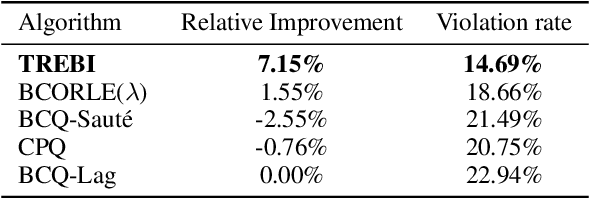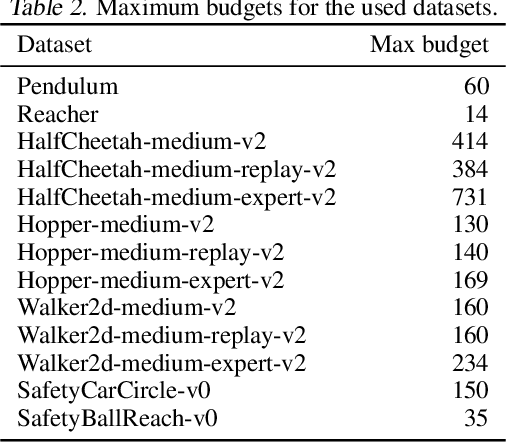Qianlong Xie
Reassessing the Role of Supervised Fine-Tuning: An Empirical Study in VLM Reasoning
Dec 14, 2025Abstract:Recent advances in vision-language models (VLMs) reasoning have been largely attributed to the rise of reinforcement Learning (RL), which has shifted the community's focus away from the supervised fine-tuning (SFT) paradigm. Many studies suggest that introducing the SFT stage not only fails to improve reasoning ability but may also negatively impact model training. In this study, we revisit this RL-centric belief through a systematic and controlled comparison of SFT and RL on VLM Reasoning. Using identical data sources, we find that the relative effectiveness of SFT and RL is conditional and strongly influenced by model capacity, data scale, and data distribution. Contrary to common assumptions, our findings show that SFT plays a crucial role across several scenarios: (1) Effectiveness for weaker models. SFT more reliably elicits reasoning capabilities in smaller or weaker VLMs. (2) Data efficiency. SFT with only 2K achieves comparable or better reasoning performance to RL with 20K. (3) Cross-modal transferability. SFT demonstrates stronger generalization across modalities. Moreover, we identify a pervasive issue of deceptive rewards, where higher rewards fail to correlate with better reasoning accuracy in RL. These results challenge the prevailing "RL over SFT" narrative. They highlight that the role of SFT may have been underestimated and support a more balanced post-training pipeline in which SFT and RL function as complementary components.
AI-Salesman: Towards Reliable Large Language Model Driven Telemarketing
Nov 15, 2025Abstract:Goal-driven persuasive dialogue, exemplified by applications like telemarketing, requires sophisticated multi-turn planning and strict factual faithfulness, which remains a significant challenge for even state-of-the-art Large Language Models (LLMs). A lack of task-specific data often limits previous works, and direct LLM application suffers from strategic brittleness and factual hallucination. In this paper, we first construct and release TeleSalesCorpus, the first real-world-grounded dialogue dataset for this domain. We then propose AI-Salesman, a novel framework featuring a dual-stage architecture. For the training stage, we design a Bayesian-supervised reinforcement learning algorithm that learns robust sales strategies from noisy dialogues. For the inference stage, we introduce the Dynamic Outline-Guided Agent (DOGA), which leverages a pre-built script library to provide dynamic, turn-by-turn strategic guidance. Moreover, we design a comprehensive evaluation framework that combines fine-grained metrics for key sales skills with the LLM-as-a-Judge paradigm. Experimental results demonstrate that our proposed AI-Salesman significantly outperforms baseline models in both automatic metrics and comprehensive human evaluations, showcasing its effectiveness in complex persuasive scenarios.
Off-Policy Primal-Dual Safe Reinforcement Learning
Jan 26, 2024



Abstract:Primal-dual safe RL methods commonly perform iterations between the primal update of the policy and the dual update of the Lagrange Multiplier. Such a training paradigm is highly susceptible to the error in cumulative cost estimation since this estimation serves as the key bond connecting the primal and dual update processes. We show that this problem causes significant underestimation of cost when using off-policy methods, leading to the failure to satisfy the safety constraint. To address this issue, we propose \textit{conservative policy optimization}, which learns a policy in a constraint-satisfying area by considering the uncertainty in cost estimation. This improves constraint satisfaction but also potentially hinders reward maximization. We then introduce \textit{local policy convexification} to help eliminate such suboptimality by gradually reducing the estimation uncertainty. We provide theoretical interpretations of the joint coupling effect of these two ingredients and further verify them by extensive experiments. Results on benchmark tasks show that our method not only achieves an asymptotic performance comparable to state-of-the-art on-policy methods while using much fewer samples, but also significantly reduces constraint violation during training. Our code is available at https://github.com/ZifanWu/CAL.
HiBid: A Cross-Channel Constrained Bidding System with Budget Allocation by Hierarchical Offline Deep Reinforcement Learning
Dec 29, 2023



Abstract:Online display advertising platforms service numerous advertisers by providing real-time bidding (RTB) for the scale of billions of ad requests every day. The bidding strategy handles ad requests cross multiple channels to maximize the number of clicks under the set financial constraints, i.e., total budget and cost-per-click (CPC), etc. Different from existing works mainly focusing on single channel bidding, we explicitly consider cross-channel constrained bidding with budget allocation. Specifically, we propose a hierarchical offline deep reinforcement learning (DRL) framework called ``HiBid'', consisted of a high-level planner equipped with auxiliary loss for non-competitive budget allocation, and a data augmentation enhanced low-level executor for adaptive bidding strategy in response to allocated budgets. Additionally, a CPC-guided action selection mechanism is introduced to satisfy the cross-channel CPC constraint. Through extensive experiments on both the large-scale log data and online A/B testing, we confirm that HiBid outperforms six baselines in terms of the number of clicks, CPC satisfactory ratio, and return-on-investment (ROI). We also deploy HiBid on Meituan advertising platform to already service tens of thousands of advertisers every day.
RL-MPCA: A Reinforcement Learning Based Multi-Phase Computation Allocation Approach for Recommender Systems
Dec 27, 2023



Abstract:Recommender systems aim to recommend the most suitable items to users from a large number of candidates. Their computation cost grows as the number of user requests and the complexity of services (or models) increases. Under the limitation of computation resources (CRs), how to make a trade-off between computation cost and business revenue becomes an essential question. The existing studies focus on dynamically allocating CRs in queue truncation scenarios (i.e., allocating the size of candidates), and formulate the CR allocation problem as an optimization problem with constraints. Some of them focus on single-phase CR allocation, and others focus on multi-phase CR allocation but introduce some assumptions about queue truncation scenarios. However, these assumptions do not hold in other scenarios, such as retrieval channel selection and prediction model selection. Moreover, existing studies ignore the state transition process of requests between different phases, limiting the effectiveness of their approaches. This paper proposes a Reinforcement Learning (RL) based Multi-Phase Computation Allocation approach (RL-MPCA), which aims to maximize the total business revenue under the limitation of CRs. RL-MPCA formulates the CR allocation problem as a Weakly Coupled MDP problem and solves it with an RL-based approach. Specifically, RL-MPCA designs a novel deep Q-network to adapt to various CR allocation scenarios, and calibrates the Q-value by introducing multiple adaptive Lagrange multipliers (adaptive-$\lambda$) to avoid violating the global CR constraints. Finally, experiments on the offline simulation environment and online real-world recommender system validate the effectiveness of our approach.
Safe Offline Reinforcement Learning with Real-Time Budget Constraints
Jun 01, 2023



Abstract:Aiming at promoting the safe real-world deployment of Reinforcement Learning (RL), research on safe RL has made significant progress in recent years. However, most existing works in the literature still focus on the online setting where risky violations of the safety budget are likely to be incurred during training. Besides, in many real-world applications, the learned policy is required to respond to dynamically determined safety budgets (i.e., constraint threshold) in real time. In this paper, we target at the above real-time budget constraint problem under the offline setting, and propose Trajectory-based REal-time Budget Inference (TREBI) as a novel solution that approaches this problem from the perspective of trajectory distribution. Theoretically, we prove an error bound of the estimation on the episodic reward and cost under the offline setting and thus provide a performance guarantee for TREBI. Empirical results on a wide range of simulation tasks and a real-world large-scale advertising application demonstrate the capability of TREBI in solving real-time budget constraint problems under offline settings.
 Add to Chrome
Add to Chrome Add to Firefox
Add to Firefox Add to Edge
Add to Edge